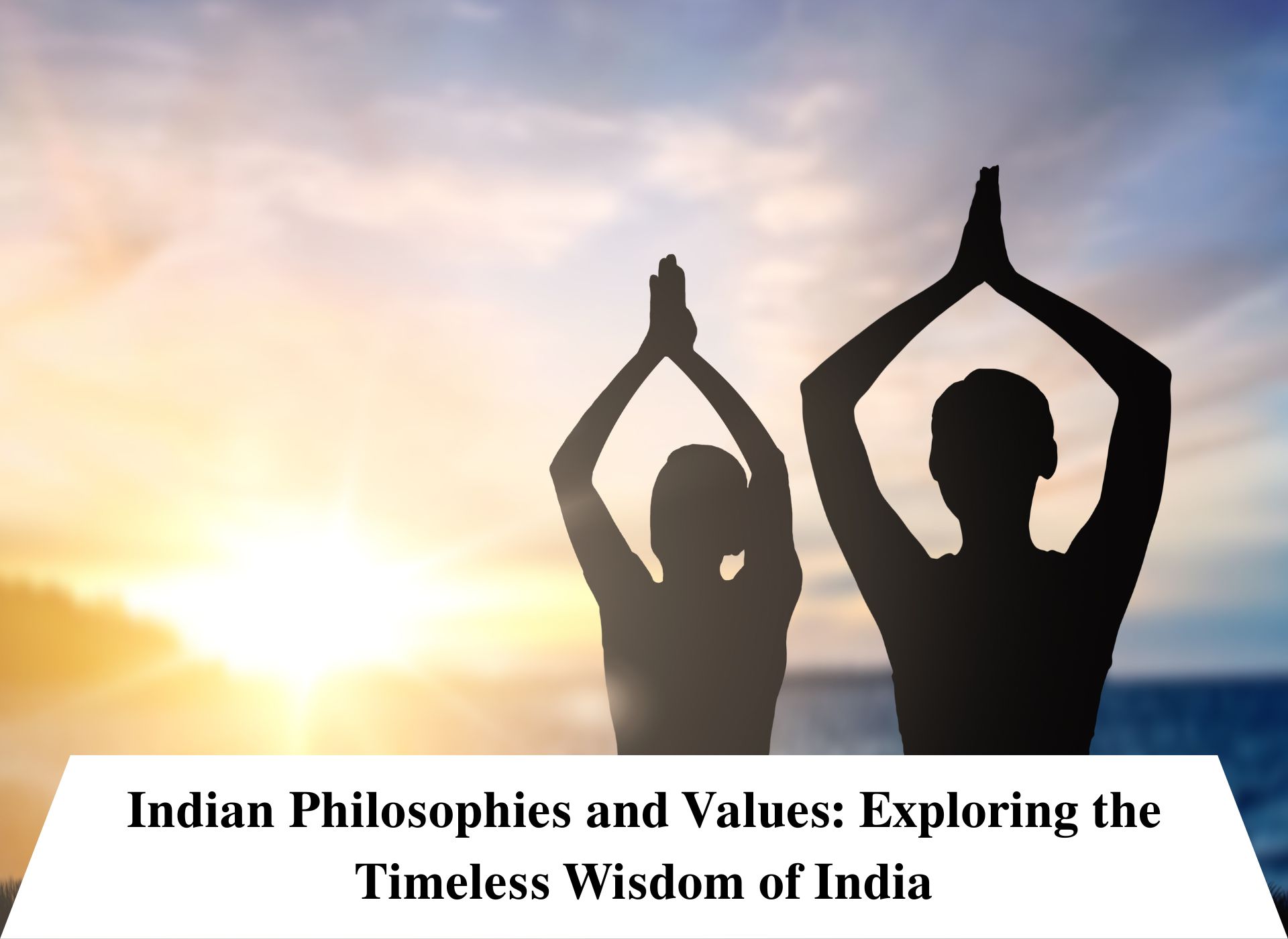India, a land steeped in rich cultural heritage and profound philosophical traditions, has long been regarded as a beacon of wisdom and enlightenment. Its ancient philosophies, deeply rooted in spiritual and ethical principles, continue to offer valuable insights into the human condition, providing a compass for personal growth, societal harmony, and a meaningful existence.
A Diverse Landscape of Thought
The Indian philosophical landscape is a vibrant tapestry of diverse schools of thought, each with its unique perspective on the nature of reality, the purpose of life, and the path to liberation. These philosophies have enriched human understanding and continue to shape the way we perceive and interact with the world around us.
- Vedanta: The Quest for Ultimate Reality: Vedanta, one of the most prominent Indian philosophies, delves into the nature of ultimate reality, often referred to as Brahman. It posits that Brahman, the supreme consciousness, is the essence of all existence and that the individual soul, or Atman, is an integral part of this universal consciousness.
- Sankhya: Unraveling the Dual Nature of Reality: Sankhya philosophy proposes a dualistic view of reality, distinguishing between Purusha, the conscious principle, and Prakriti, the material principle. It explores the interaction between these two fundamental elements and the path to achieving liberation from the cycle of rebirth.
- Yoga: A Path to Self-Realization: Yoga, a holistic philosophy and practice, emphasizes the union of the individual soul with the supreme consciousness. It encompasses various techniques, including physical postures, breathing exercises, and meditation, to achieve physical, mental, and spiritual well-being.
- Jainism: Non-Violence and Compassion at the Core: Jainism, founded by Mahavira, advocates for non-violence, compassion, and detachment from worldly possessions. It emphasizes the concept of ahimsa, the avoidance of harm to all living beings, and cultivates a deep reverence for all forms of life.
- Buddhism: The Path to Enlightenment: Buddhism, founded by Siddhartha Gautama, the Buddha, seeks to liberate individuals from suffering through the path of enlightenment. It emphasizes the importance of understanding the Four Noble Truths and following the Eightfold Path to achieve Nirvana, a state of perfect peace and liberation.
Core Values that Shape Indian Culture
These ancient philosophies have given rise to a set of core values that permeate Indian society and culture, shaping the way individuals and communities interact with the world. These values, known as Purusharthas, provide a framework for a meaningful and fulfilling life.
- Dharma: Righteous Conduct and Moral Living: Dharma, a central concept in Indian philosophy, encompasses righteousness, ethical conduct, and adherence to one’s duties and responsibilities. It serves as a moral compass, guiding individuals toward a life of integrity and virtue.
- Artha: Material Well-being and Prosperity: Artha refers to material well-being, economic prosperity, and the pursuit of worldly success. It emphasizes the importance of achieving financial stability, resourcefulness, and a sense of accomplishment in the material world.
- Kama: Sensual Enjoyment and Aesthetic Fulfillment: Kama encompasses sensual enjoyment, aesthetic fulfillment, and the pursuit of pleasure within the boundaries of morality and ethical conduct. It recognizes the importance of balanced enjoyment and appreciation for the sensory world.
- Moksha: Liberation and Spiritual Enlightenment: Moksha, the ultimate goal of human existence, refers to liberation from the cycle of rebirth, suffering, and attachment to worldly desires. It represents the attainment of spiritual enlightenment and a state of bliss and liberation.
Relevance in Today’s World: Timeless Wisdom for Modern Times
While these philosophies and values originated centuries ago, their relevance remains as profound today as it was in ancient times. They offer a timeless framework for navigating the complexities of modern life, guiding personal relationships, ethical decision-making, and achieving a sense of purpose and fulfillment.
In a world grappling with challenges such as environmental degradation, social unrest, and personal struggles, these ancient teachings offer a beacon of hope and wisdom. They remind us of our interconnectedness with all living beings, the importance of ethical conduct, and the pursuit of a meaningful existence that transcends material gains.
Nurturing Philosophies and Values at Gyan Vihar World School: A Commitment to Holistic Education
Gyan Vihar World School, one of the Best CBSE schools in Jaipur, recognizes the enduring value of Indian philosophies and values. The school has incorporated these principles into its curriculum and ethos, fostering a learning environment that nurtures intellectual curiosity, ethical conduct, and a deep appreciation for India’s rich cultural heritage.
Embracing Wisdom for a Meaningful Future
India’s rich tapestry of philosophies and values offers a timeless roadmap for personal growth, societal harmony, and a meaningful existence. By embracing these principles, we embark on a journey of self-discovery, ethical living, and a deeper understanding of our place in the world.
In a world that often emphasizes speed, competition, and material success, these ancient teachings remind us of the importance of balance, compassion, and the pursuit of knowledge beyond academic achievements. They encourage us to cultivate inner peace, cultivate empathy, and strive for a life of purpose that contributes positively to society.
As we celebrate the enduring wisdom of Indian philosophies and values, let us commit to embracing their principles and nurturing them in ourselves and future generations. By doing so, we pave the way for a world where individuals are not just academically accomplished but also ethically grounded, compassionate, and guided by a deeper understanding of their place in the universe. Let us empower ourselves and others to embody the timeless wisdom of India, shaping a future where wisdom, integrity, and meaningful connections flourish.







